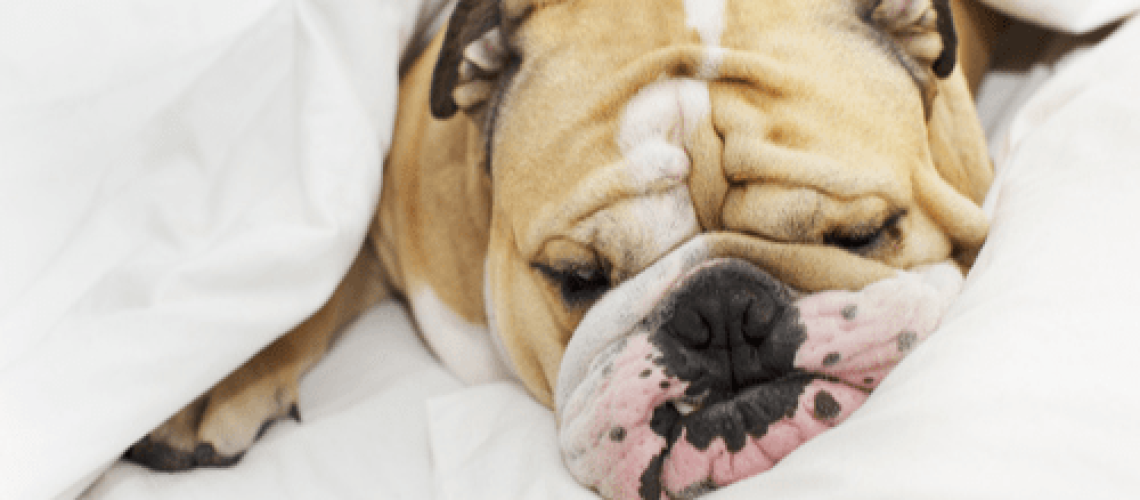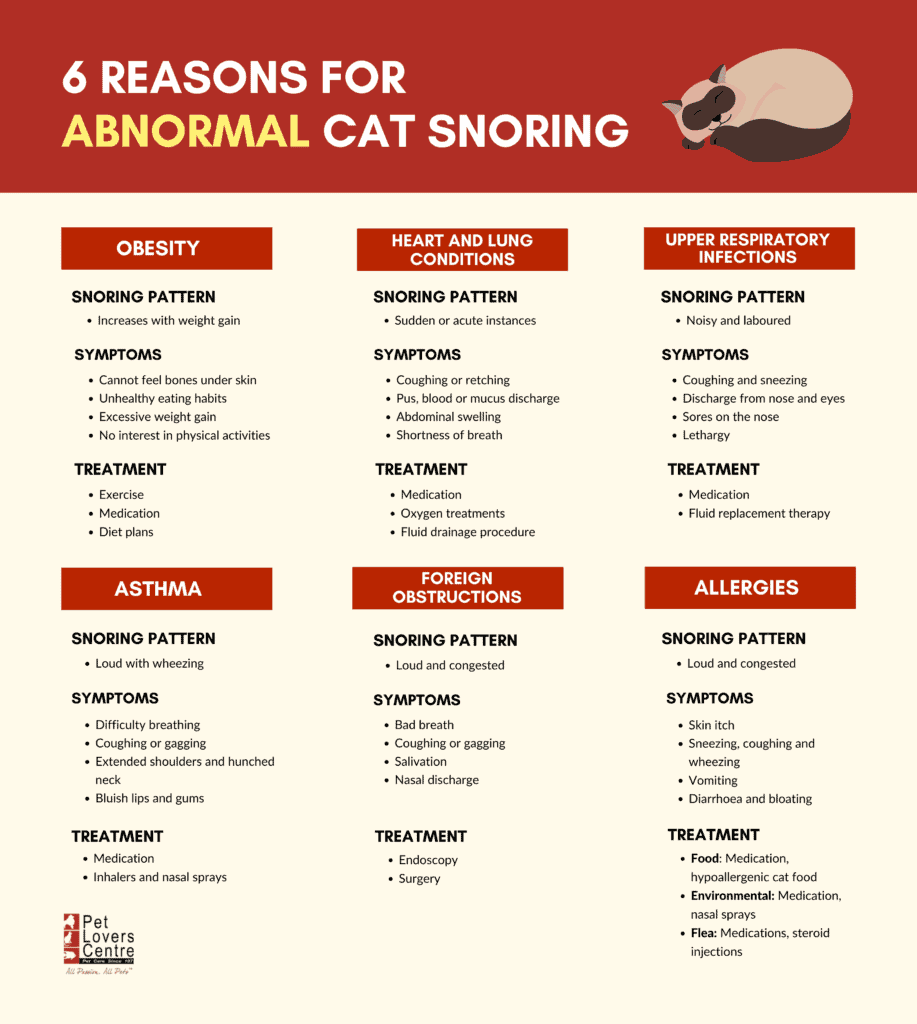Key Takeaways:
- Snoring in dogs is usually caused by an obstruction in the airway, such as excess tissue or a narrow nasal passage.
- Certain dog breeds are more prone to snoring due to their anatomy, including brachycephalic breeds like Bulldogs and Pugs.
- Snoring can also be a sign of underlying health issues, such as allergies, respiratory infections, or obesity.
- While occasional snoring is normal, persistent loud snoring should be evaluated by a veterinarian to rule out any serious conditions.
- Simple lifestyle changes like weight management and using elevated beds can help reduce snoring in dogs.
Introduction:
Have you ever wondered why your furry friend snores? Well, get ready to dive into the fascinating world of dog snoring! Understanding why dogs snore can not only help you better care for your pup, but it also reveals surprising insights about their health and well-being. So, if you're curious about what causes those adorable snores and how they relate to your dog's overall happiness, keep reading! You'll be amazed at what you discover.
Why does my dog snore when it sleeps?
When dogs sleep, their breathing can sometimes become noisy and result in snoring. This happens because the airway passages in their nose and throat become partially blocked or narrowed. Just like humans, dogs have soft tissues in their airways that can vibrate when airflow is restricted, causing the snoring sound.
The main reasons why dogs snore include:
- Nasal congestion: If your dog has a stuffy nose due to allergies, a cold, or respiratory infections, it can lead to snoring.
- Anatomy: Some dog breeds have naturally narrow airways or elongated soft palates, making them more prone to snoring.
- Position: Dogs that sleep on their backs are more likely to snore because gravity can cause the tongue to block the airway partially.
Nasal Congestion
Dogs can experience nasal congestion just like humans do. Allergies to pollen, dust mites, or certain foods can cause inflammation in the nasal passages and make it difficult for your dog to breathe properly. Respiratory infections such as kennel cough or sinusitis can also lead to a congested nose and subsequent snoring.
Anatomy
Some dog breeds are more prone to snoring due to their anatomy. Breeds with short noses like Pugs and Bulldogs often have narrower nasal passages and elongated soft palates compared to breeds with longer muzzles. These structural differences increase the likelihood of airflow obstruction during sleep and result in snoring.
Sleeping Position
The position in which your dog sleeps can affect its likelihood of snoring. When dogs sleep on their backs, their tongues can fall back and partially block the airway. This obstruction causes the air to flow more forcefully, leading to snoring. Encouraging your dog to sleep on its side or stomach may help reduce snoring.
What causes dogs to snore more than humans?
Understanding the Anatomy of a Dog's Airway
When it comes to snoring, dogs have some unique anatomical features that make them more prone to this noisy habit compared to humans. One key factor is their airway structure. Unlike humans, dogs have a shorter and narrower airway passage, which can easily become obstructed. Additionally, certain dog breeds have specific characteristics that contribute to snoring. For example, brachycephalic breeds like Bulldogs and Pugs have shorter noses and elongated soft palates, making it harder for air to flow freely through their airways.
Nasal Congestion and Allergies
Another reason why dogs may snore more than humans is nasal congestion or allergies. Just like us, dogs can suffer from allergies that cause inflammation in their nasal passages. This inflammation can lead to increased mucus production and blockage of the airway, resulting in snoring. Common allergens for dogs include pollen, dust mites, mold spores, and certain foods.
Tips for Reducing Snoring in Dogs:
- Keep your dog's living area clean and free from dust or other potential allergens.
- Regularly groom your dog to prevent excessive shedding and dander buildup.
- Consult with your veterinarian about possible allergy treatments or medications for your furry friend.
It's important to note that occasional snoring in dogs is usually harmless. However, if your dog's snoring becomes excessively loud or is accompanied by other symptoms such as difficulty breathing or excessive fatigue during the day, it's best to consult with a veterinarian.
Are certain dog breeds more prone to snoring? If yes, why?
The Influence of Brachycephalic Breeds
Yes, certain dog breeds are more prone to snoring due to their unique physical characteristics. Brachycephalic breeds, which have short noses and flat faces, are particularly susceptible to snoring. These breeds include Bulldogs, Pugs, Boston Terriers, and Shih Tzus. The shortened nasal passages and elongated soft palates in these dogs make it harder for air to flow smoothly through their airways, leading to increased snoring.
Other Factors Contributing to Snoring
Apart from brachycephalic breeds, other factors can also contribute to snoring in dogs. Excessive weight or obesity can put extra pressure on the airway, causing it to become partially blocked during sleep. Additionally, age-related changes in muscle tone and overall health can increase the likelihood of snoring in older dogs.
Preventing Snoring in Dogs:
- If you have a brachycephalic breed, avoid activities that may exacerbate breathing difficulties such as strenuous exercise during hot weather.
- Help your dog maintain a healthy weight through regular exercise and a balanced diet.
- Provide your dog with a comfortable sleeping environment that promotes proper airflow.
Remember that while certain dog breeds may be more prone to snoring, individual variations exist within each breed. Regular veterinary check-ups can help identify any underlying health issues contributing to excessive snoring.
Can obesity in dogs contribute to snoring? How?
The Link Between Obesity and Snoring
Yes, obesity in dogs can contribute to snoring. When a dog is overweight or obese, excess fat deposits can accumulate around the neck area and narrow the airway passage. This narrowing restricts the smooth flow of air during breathing and increases the chances of snoring during sleep.
Health Risks Associated with Obesity
Obesity not only affects a dog's snoring habits but also poses various health risks. It can lead to respiratory problems, joint issues, diabetes, and heart disease. Therefore, it is crucial to address obesity in dogs promptly.
Tips for Managing Weight and Reducing Snoring:
- Consult with your veterinarian to determine the ideal weight for your dog and create a tailored diet plan.
- Provide regular exercise opportunities for your furry friend to help them burn calories and maintain a healthy weight.
- Avoid overfeeding or giving excessive treats, as this can contribute to weight gain.
By managing your dog's weight effectively, you can not only reduce snoring but also improve their overall health and well-being.
Is there a way to help reduce or prevent my dog's snoring?
Creating an Optimal Sleeping Environment
Yes, there are several measures you can take to help reduce or prevent your dog's snoring. Creating an optimal sleeping environment is one of them. Ensure that your dog has a comfortable bed with proper support for their body. Elevating their head slightly using a pillow or cushion can also help open up the airway and promote better breathing during sleep.
Addressing Allergies and Nasal Congestion
If allergies or nasal congestion are contributing to your dog's snoring, it's important to address these underlying issues. Keep your home clean and free from potential allergens like dust mites or pollen. Regularly groom your dog to minimize shedding and dander buildup. If necessary, consult with a veterinarian who may recommend allergy treatments or medications.
Additional Tips for Reducing Snoring:
- Avoid exposing your dog to secondhand smoke, as it can irritate their airways.
- Encourage regular exercise during the day to promote overall respiratory health.
- Consider using specially designed anti-snore devices for dogs, such as nasal strips or snore relief sprays.
Remember, it's essential to consult with a veterinarian if your dog's snoring persists or worsens despite implementing these measures. They can provide further guidance and ensure there are no underlying health issues causing the excessive snoring.
Should I be concerned if my dog starts snoring suddenly?
Possible Reasons for Sudden Snoring
If your dog starts snoring suddenly, it may be worth paying attention to any potential underlying causes. Sudden changes in snoring patterns can indicate an issue that requires veterinary attention. Some possible reasons for sudden snoring include respiratory infections, allergies, foreign objects lodged in the airway, or even dental problems.
When to Seek Veterinary Care
While occasional snoring is usually harmless, sudden and persistent changes should not be ignored. If your dog's sudden snoring is accompanied by other concerning symptoms like difficulty breathing, coughing, sneezing, or lethargy, it's best to consult with a veterinarian promptly. They can conduct a thorough examination and recommend appropriate treatment based on the underlying cause.
Remember that early detection and intervention can help prevent any potential complications and ensure your furry friend stays healthy and happy.
In conclusion, dogs may snore due to various reasons such as their breed, weight, or underlying health issues. While it is generally harmless, if the snoring becomes excessive or accompanied by other symptoms, it is best to consult a veterinarian for further evaluation and advice.
Should I be concerned if my dog snores?
Like humans, dogs can also catch colds, the flu, and respiratory infections. If your dog starts snoring suddenly and also exhibits symptoms such as sneezing, nasal discharge, coughing, or wheezing, it is important to take them to a veterinarian right away. In some cases, snoring in dogs may also be caused by weight gain, which can lead to narrowing of their airways.
Is a snoring dog a happy dog?
If your dog is content, in good health, full of energy, and has a healthy appetite, snoring might just be a sign that they are enjoying a happy and comfortable life.
What does it mean when a dog snores in their sleep?
When dogs snore, it is because the tissues in their nose, mouth, or throat vibrate as air passes through them. This can occur if their airway becomes narrower due to inflammation, an obstruction, congestion, or other problems.
Do dogs snore more as they age?
While snoring can occur in dogs of any age, older dogs are more prone to certain issues that can result in snoring. According to Dr. Jan, these issues include inflammatory rhinitis, nasal foreign bodies, tumors, and fungal infections, which can all cause snoring, reduced nasal airflow, and nasal discharge in dogs.
How common is it for dogs to snore?
It is common for dogs to snore, so if your dog sounds loud when sleeping, it is usually not a cause for concern. However, brachycephalic breeds with issues with their soft palate or narrow nostrils may experience difficulties due to restricted airflow.
How do I know if my dog is depressed?
According to John Ciribassi, DVM, a former president of the American Veterinary Society of Animal Behavior, dogs experience symptoms of depression that are similar to those in humans. Dogs may become socially withdrawn and inactive, and their eating and sleeping patterns often change.

















